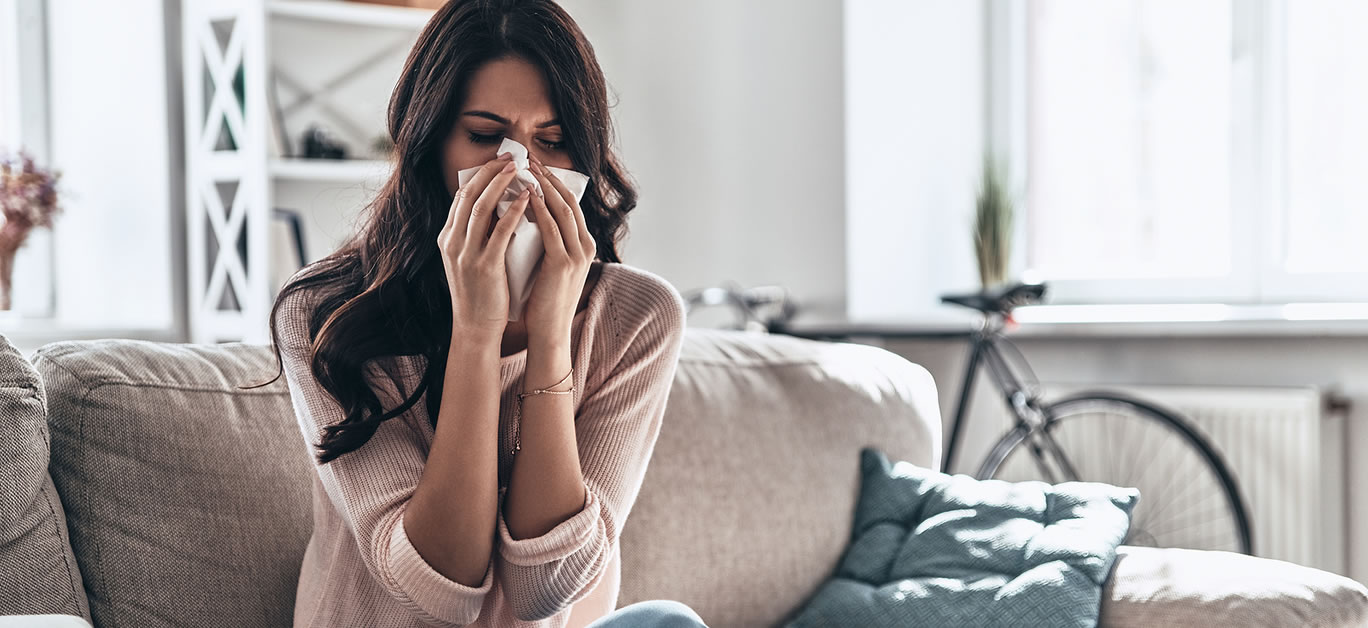A recent study has found that hay fever is on the rise in London. The tree’s pollen count for London is currently (as of April 2022) 422 PPM, which is classed as high. This means that those who suffer with seasonal hay fever will most likely experience symptoms earlier this year as the weather starts to warm up – and with a heatwave on the way this could be very soon.
Hay fever is a common allergy to pollen from grass, trees and flowers, and it generally starts at this time of year. The main features are an itchy, watery nose (rhinitis), sneezing, and itchy, red, puffy eyes. It can also cause an itchy throat and cough, as well as aggravating asthma if you have it. Here, Parvinder Sagoo, pharmacist of leading UK online pharmacy Simply Meds Online, reveals his seven tips for soothing hay fever symptoms.
Use a balm
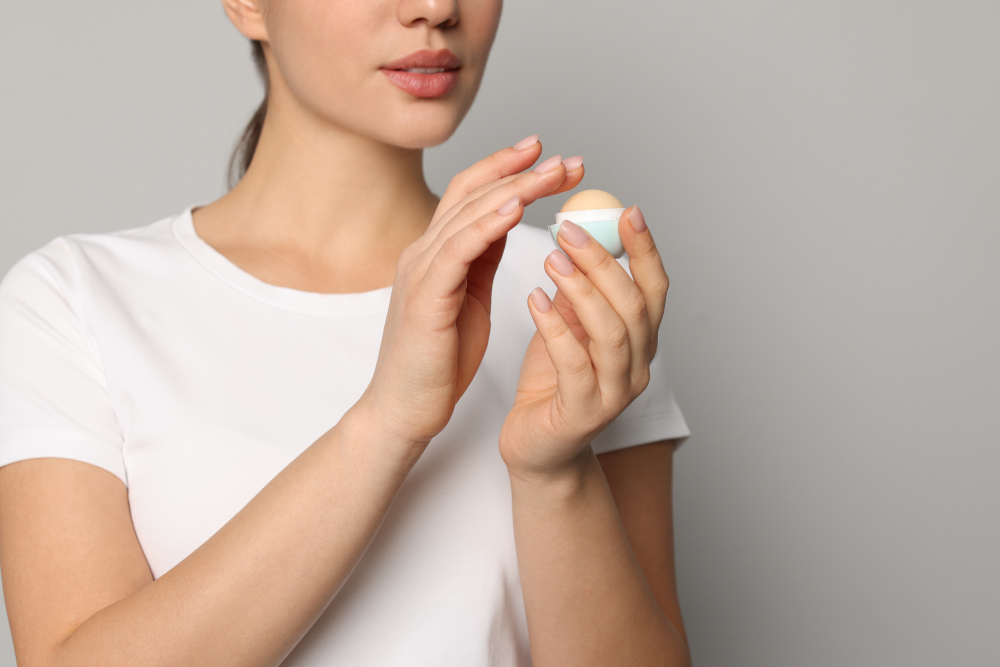
The main cause of persistent sneezing is usually from pollen particles entering and settling in your nasal passage and causing a tickling sensation which causes you to develop short bursts of sneezing. Try dabbing a little bit of balm, this can be Vaseline or any other type of balm textured product, around the opening of each nostril on your nose.
This should help to essentially trap pollen particles before they are able to enter your nasal passage after travelling from outside and into your home. You should re apply a balm throughout the day to ensure that the particles are able to stick properly to the area, as it most likely will be wiped away especially if you find you are sneezing quite a lot or touching your face in general.
Nasal cleanse
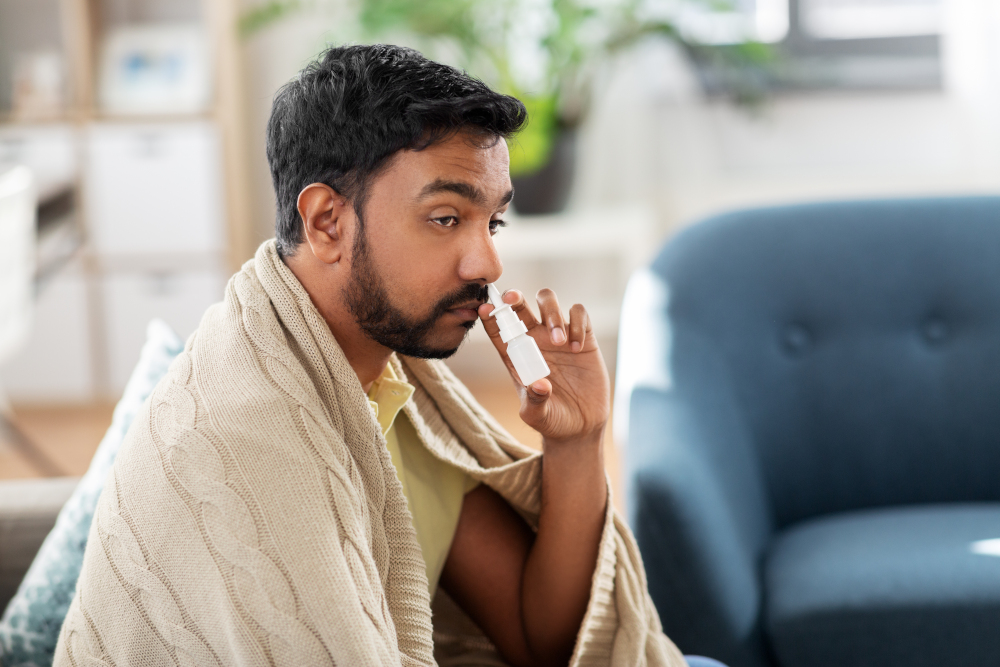
A nasal cleanse, or sinus cleanse is a great way to rid of any lingering irritants which have attached themselves high up into the hairs of your nasal passage. Do this using a salt water solution once or twice a day, tip your head at an angle over your bath or sink and try to use a funnel like tool or even a water bottle with a spout and essentially pour or shoot the salt water solution straight into your nose, this surge of water should help to flush out and remove and any irritants whilst also cleaning the area of any mucus or other irritants.
Take home remedies
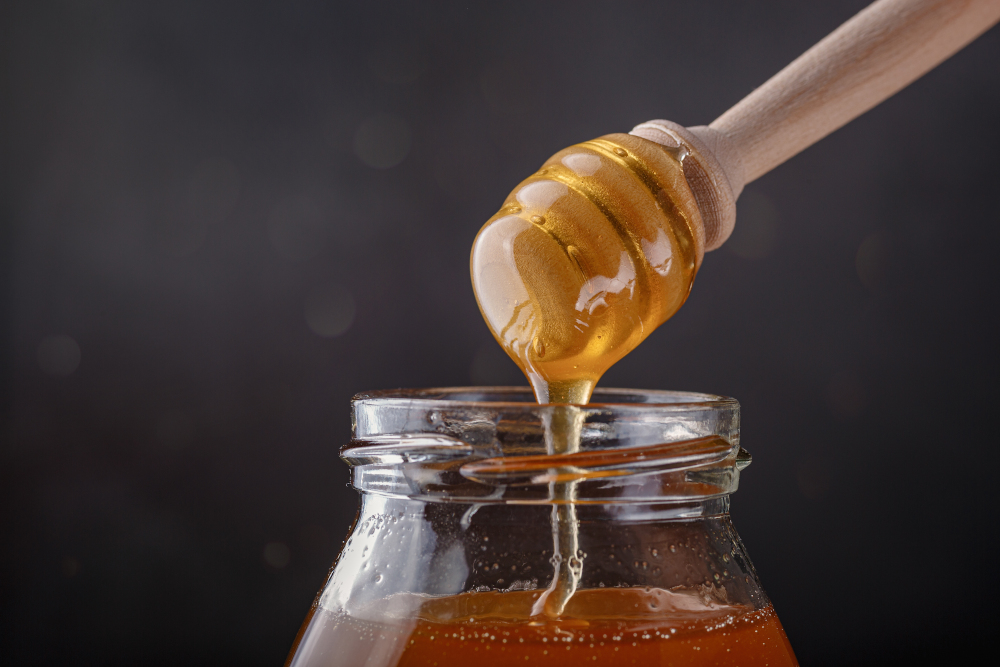
Honey is a natural remedy for hay fever because the bee pollen in honey can actually desensitise your body to other pollen, so increasing your daily honey intake should actually reduce hay fever symptoms significantly. I would advise either having a spoonful or two per day right out the jar, or adding to your morning porridge or granola. Immunity boosting supplements such as Bio Defence, or Unbeelievable’s Daily Defence are also advised if you find your symptoms leaving you feeling worse for wear.
Keep yourself clean
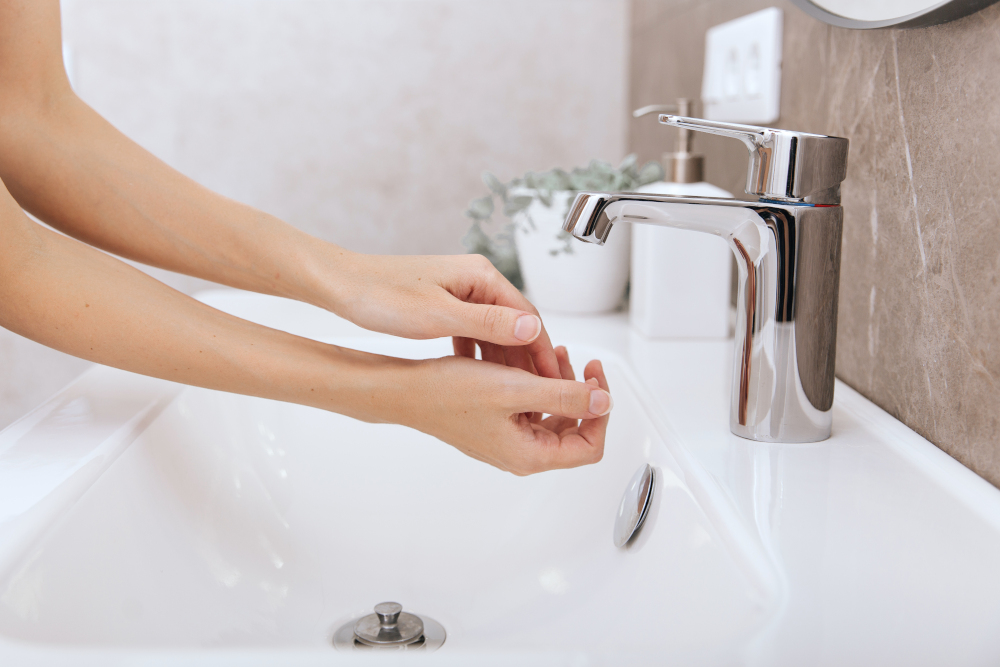
Pollen particles can actually sit on clothes and other such surfaces for quite a long time so even if it starts to rain and the pollen count decreases you may still find you are suffering with symptoms and this is most likely because you are wearing clothes with particles sitting on them.
I would advise keeping yourself and your clothes as clean and fresh as possible. You want to ensure you are washing enough throughout the day to keep your hands and face free from any lingering pollen particles which may travel up into your nose, mouth or eyes. Wash your face twice daily with water, ensuring you’re are allowing water to enter your nose and eyes to wash out any pollen, this is important if itchy or watery eyes are a symptom for you as the eyes will need to be thoroughly rinsed with warm water to ensure all particles have left the tear duct region.
Anti-allergy treatments
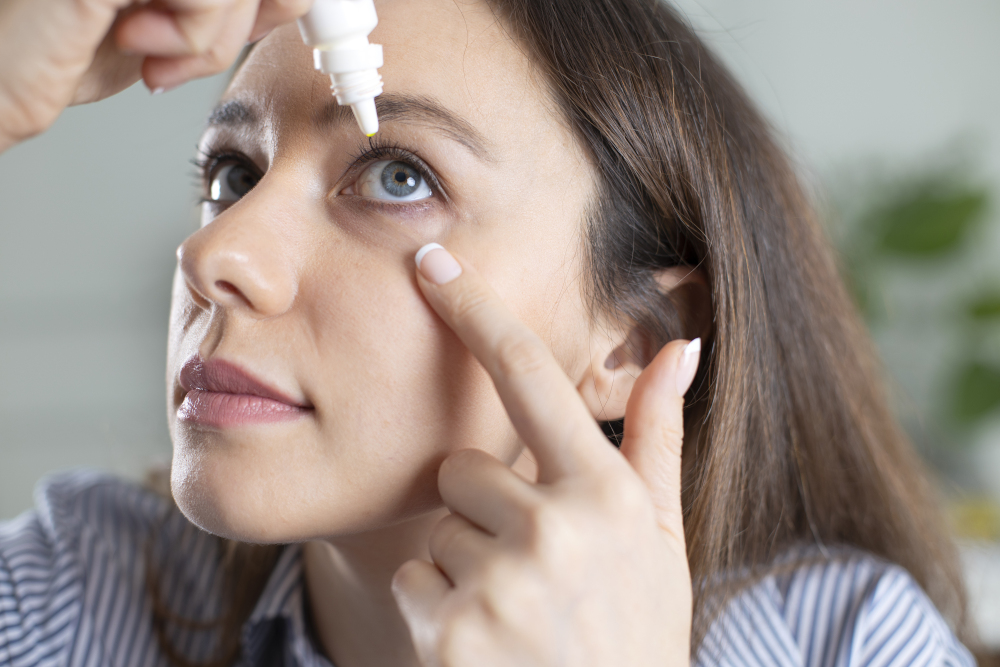
If you find that your allergies are becoming pretty bad in the office and perhaps your co-workers feel uncomfortable sitting near you, you may want to try and fully curb symptoms and purchase some anti-allergy medication and relieving products such as tablets, sprays, balms and eye drops. Anti-allergy eye drops, these will help treat eye symptoms, such as redness, itching, swelling and watering. Nasal sprays can help with an itchy, runny, or congested nose, they act by coating the lining of the nose with a barrier film. This help prevents the pollen from coming into direct contact with the nasal surface, reducing the allergic response.
Change your diet
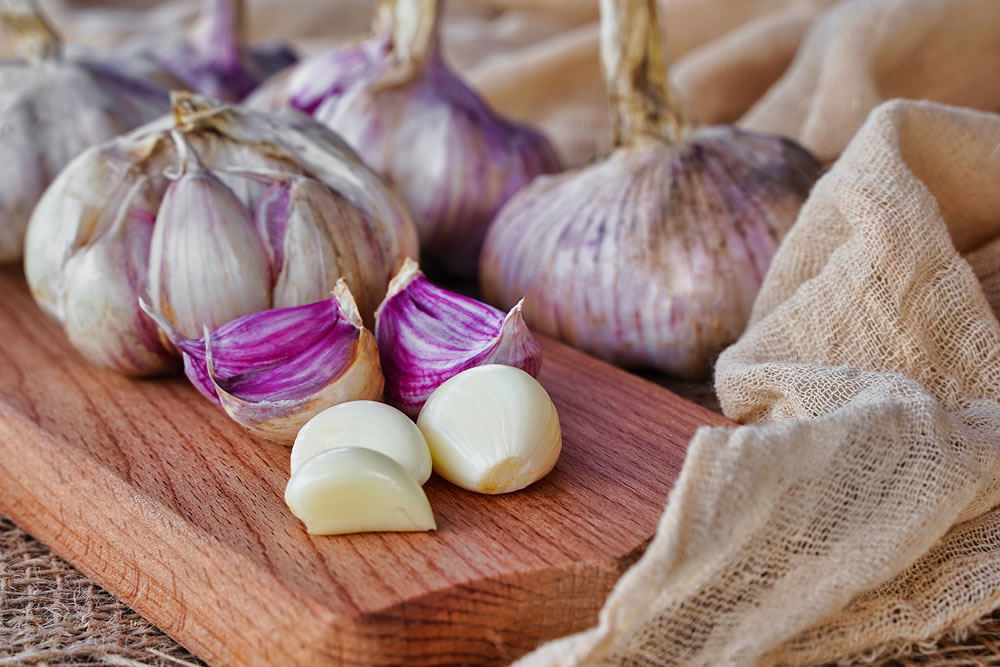
Surprisingly, adjusting your diet may help with your sleep during the high pollen count months. Certain foods can actually worsen hay fever symptoms, so staying away from dairy products, starchy and sugary foods before bed should help to reduce your chances of symptoms. Eating foods such as ginger, garlic and chilli can actually help to treat hay fever symptoms as they are high in vitamin C which has been known to improve lung function due to quercetin, which is an antioxidant.
Antihistamines
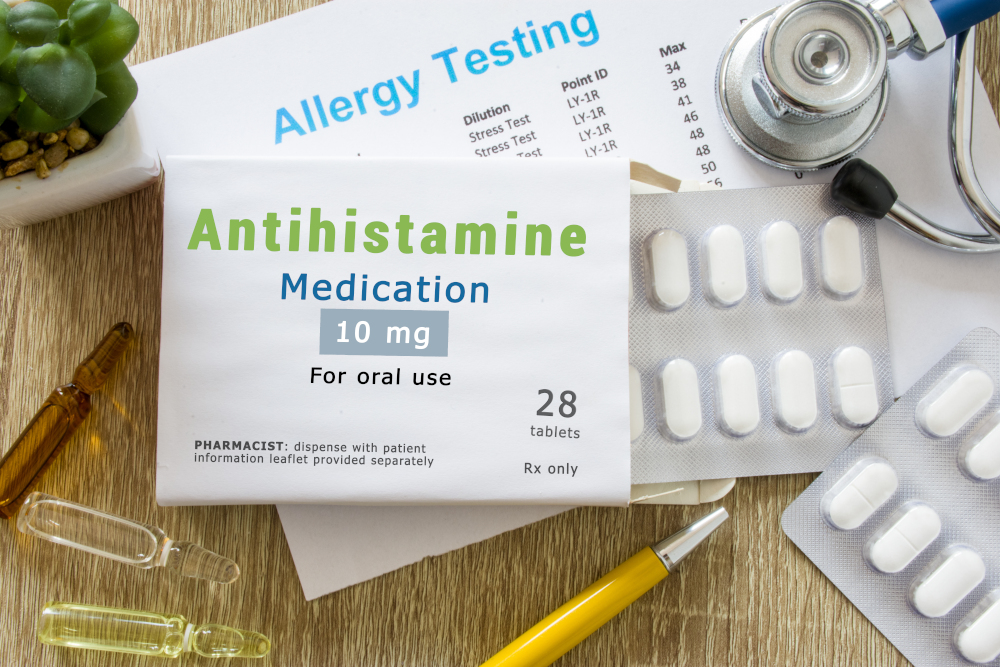
Prevention is better than cure, and antihistamines are your best bet when it comes to preventing symptoms before they occur, as most often once pollen has made its way into your nasal passage or mouth its difficult to prevent symptoms such as a runny nose, sneezing or itchy eyes, so its best to take treatment an hour or so before you leave the house.
Always consult a medical professional before starting any new medication.












